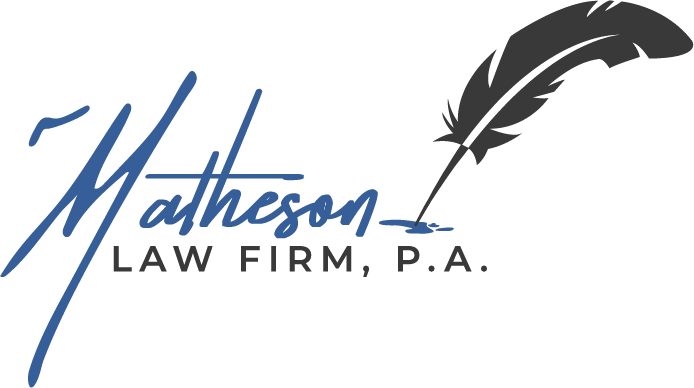Real Estate Closings: Calculating Your Cash to Close

Buying a home is exciting, but there are many costs associated with the homebuying process that some first-time buyers may not fully understand. One such expense is the cash needed to close on your new home. Calculating your cash to close is an important step to take so you don’t suffer sticker shock when it comes time to seal the deal on your new property. At Matheson Law Firm, our team has helped countless clients understand the closing process, allowing them to fully prepare for all associated costs well before it’s time to officially close.
What Is Cash to Close?
During the homebuying process, you’ll hear plenty of terms thrown around, including “cash to close” and “closing costs.” It’s important to note that these two things are not the same. The main differences between closing costs and cash to close are as follows:
- Closing Costs: Closing costs are the fees paid to your mortgage company in order to close on your loan.
- Cash to Close: The total sum of funds needed to bring to your closing to complete the real estate transaction.
Your cash to close includes all of the total closing costs less any fees that are rolled into the total loan amount. Cash to close also includes the down payment, any seller credits, and any refunds for overpayments and other credits.
How to Calculate Cash to Close
Three days prior to your closing date, you will receive a Closing Disclosure document detailing all of the cash needed to close on your property. However, waiting three days prior to learn how much you owe isn’t always the best route to take. Instead, homebuyers can calculate their cash to close by using their Loan Estimate. Within your Loan Estimate document, you will find the cost estimation which indicates the total amount owed at closing both in dollars and as a percentage of the mortgage’s value.
Usually, homebuyers can expect to pay between 2% and 5% of the total loan amount when it comes time to close. This percentage includes the cost of the down payment. While only an estimation, these numbers are generally accurate enough to use so that you can plan accordingly for the closing process. If you’re still unsure about what the total cash to close will be for your real estate transaction, consult with your real estate attorney to learn more.
How to Pay Your Cash to Close
There are a number of methods to use when paying your cash to close. When preparing to pay, you may elect one of the following options:
- Cashier’s Check
- Certified Check
- Wire Transfer
- Cash
- Credit/Debit Card
- Personal Check
While credit and debit cards, and personal checks might be accepted by some, it’s not recommended that you use these options to satisfy the balance on your cash to close. These methods of payment are much less secure than cashier’s checks, certified checks, and wire transfers. Always consult with your real estate attorney before submitting payment to ensure you are selecting the most secure method of payment.
How Matheson Law Can Help with Cash to Close
At Matheson Law Firm, our team has years of experience serving the unique needs of Charlotte-area homebuyers and sellers. Our team has helped countless clients through the closing process, helping them prepare for their cash to close using the most accurate estimations possible. If you’re preparing to close on a property in Charlotte, N.C. and require assistance through the closing process, don’t hesitate to contact our team to schedule a consultation with our real estate attorneys today!




